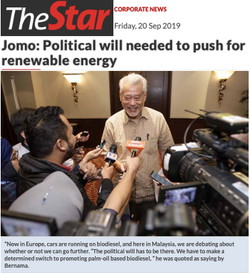- Mar 26, 2025
- 4 min read
KUALA LUMPUR, Malaysia, Mar 26 2025 (IPS) - The World Bank set its US ‘dollar-a-day’ poverty line using its 1990 data. Despite many doubts and criticisms, its poverty numbers fell until the COVID-19 pandemic began in 2020.
Cash measures
The Bank claimed credit for reducing poverty in the three decades before 2020, mainly due to rapid growth in China. But official poverty estimates elsewhere have generally declined more slowly, if at all.
Poverty has long been seen in terms of inequality, as people generally feel poorer compared to others. Meanwhile, explanations of poverty differ considerably, with many calling for better policy measures.
For decades, the Bank refused to address inequality, focusing instead on poverty. Efforts to improve poverty measurement have long been driven by the belief that policy cannot be improved without better estimating it.
Measuring or estimating cash incomes has inevitably been prioritised. But the focus on money incomes poses problems. Money measures of poverty can be helpful but also deceptive. For instance, many children from urban households with incomes above the poverty line remain undernourished.
However, incomes above any arbitrarily set poverty line do not necessarily ensure well-being. This has generated interest in poverty indicators other than money incomes.
Such criticisms reflect a money fetish and the widespread practice of measuring welfare, well-being and poverty in cash terms. Recognising the value of other poverty indicators is now uncontroversial.
Dimensions of poverty
Yet many still want a single composite multidimensional poverty index despite its well-known problems. A dashboard of several key dimensions of poverty, rather than a single composite index, offers much more relevant information to improve policymaking.
Aware of such problems and limitations, OECD and UN Member States have not approved of composite indices. Neither adopted the pioneering work on composite indices by the most influential statistician of both bodies.
Composite indices, such as the human development index, have only been adopted and used by UN funds and programmes, which do not require Member State approval or review.
Meanwhile, lower infant and maternal mortality have accounted for over 80% of improved life expectancy in many developing countries. Low-cost reforms for safer pregnancies and births have significantly extended average life spans at low cost.
Food security
The UN Food and Agriculture Organization (FAO) has long defined food-secure households as those with enough income to afford enough carbohydrates or dietary energy (typically measured in calories or joules) for a sedentary lifestyle.
Despite this low bar and its methodological problems and limitations, undernourished or ‘food-insecure’ households have increased worldwide since 2014, growing for years while the World Bank’s estimate of poor households continued to decline!
According to the Bank, the number of poor worldwide only increased for the first time since the 1990s during the pandemic, both absolutely and relatively. This discrepancy between multilateral poverty and undernourishment trends has triggered debates over the significance of different well-being and deprivation measures.
Various controversies and doubts about Bank poverty numbers have prompted many to regard undernourishment as a better indicator of deprivation and lack of well-being than the poverty measure.
Although income inequality trends are moot and the subject of much dispute and controversy, disparities worldwide have risen again in recent years.
Meanwhile, dollar billionaires have proliferated worldwide as inequality has worsened. As income and wealth inequalities worsen, some convergences have also occurred, causing both trends to be mixed and uneven.
With rural impoverishment spreading worldwide, urbanisation has grown while reducing rural food production for household subsistence consumption. Rural households typically produced food for own consumption by breeding animals, harvesting fruits and vegetables, or even gathering food available nearby.
However, urban areas offer far fewer subsistence production and consumption opportunities. Cash incomes and spending increasingly determine food consumption, including personal nourishment.
Nutrition matters
As man does not live by bread (‘carbs’, i.e., dietary energy from carbohydrates) alone, a more holistic approach requires a more comprehensive approach to human nutrition.
Comparisons of the physical development of children of food producers and cash croppers suggest that household money incomes have not always determined the nutritional status of many.
Food producers’ children are generally better off than those of cash croppers. Why? Probably, food producers are far more likely to provide adequate nourishment to their families regardless of cash incomes.
Thus, children of food producers meet many of their food needs without buying them on the market. Hence, the common presumption that higher cash incomes ensure well-being, including nutrition, is doubtful.
Malnutrition challenges our understanding of well-being and its complex determinants. Many now suffer malnutrition, not only due to both macro and micro-nutrient deprivation but also due to the growing significance of diet-related non-communicable diseases.
As with obesity and overweight, diabetes incidence has risen with new consumer preferences. Incomes, the media, and other influences increasingly shape lifestyles with significant consequences for nutrition and health, many of which are perverse.
Related IPS Articles
Available online here: Malnutrition Not Due to Cash Poverty Alone




















